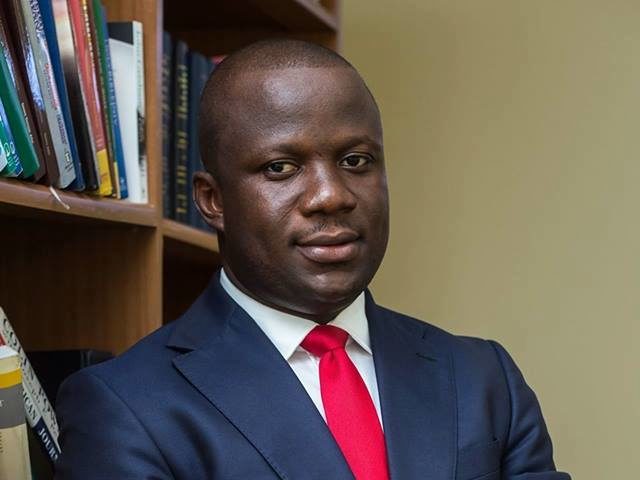Forget the one-year-old Covid-19 pandemic. Yes, do, because it is not foolhardy if you did so.
Indeed, even before Covid-19 entered its second year, the world has rallied to find its antidote in a vaccine.
In fact, if you were to weigh the burden of duty placed on the shoulders of Health Minister designate, 66-year-old Kwaku Agyemang Manu, to navigate Ghana out of Covid-19 as against that which lies in wait for 38-year-old Samuel Abu Jinapor, the latter has a bigger burden.
Mr Jinapor is walking into a designation that has been fraught with many challenges, ranging from land degradation, deforestation with the biggest being illegal mining and many other practices that define man’s very existence on earth.
Yes! That is the magnitude of the task ahead of him, problems that even some of the world’s wealthiest nations have struggled to deal with.
In fact, even for countries where law enforcement top notch, the issue of climate change and proposed policies to deal with same have decided the voting patterns of citizens because of the importance placed on them.
Ghana’s environmental issues transcend just policy; they are about enforcement of existing laws and regulations.
For many people who have observed Ghana’s fight against the illegal mining menace, their conclusions are almost the same – enforcement and the lack it.
Where must Mr Jinapor’s focus be?
Illegal mining activities have become the biggest environmental issue in the last few years, a situation that has left many water bodies destroyed.
Indeed, thousands of acres of farmlands have been turned into wasteland as a result of these activities.
The sad thing about illegal mining and its attendant problems is that it does not affect people only in areas where the illegal activities take place.
The devastation caused by such activities are national in character and go beyond just the destruction of the land on which they are executed.
Apart from the chemicals contaminating the soil and rendering the land unproductive, illegal mining leads to very high levels of deforestation.
Illegal mining directly impacts on about four of the 17 Sustainable Development Goals.
One is climate change – the degradation of our environment contributes to climate change, affecting the attainment of SDG goal 13.
But the problem Mr Jinapor is bound to face will not be his willingness to deal with the issues.
His real problem will come from people from his political stalk who will desperately throw spokes into his wheel for their own vested interests in this devastating activity called galamsey.
It goes without saying, therefore, that to stamp his authority, Ghana will open her eyes to see what statement he makes in his first 100 days by way outlining concrete strategies targeted at combating galamsey.
Issues of galamsey do not only pose environmental challenges, they have the tendency to reduce the quality of life or even terminate lives completely.
A recent documentary by one of Ghana’s most-decorated journalists, Seth Kwame Boateng of JoyNews has revealed how renal cases are prevalent in the Central and Western regions where illegal mining activities are high.
In the said documentary, Mr Boateng spoke to doctors from the Central Region Teaching Hospital who confirmed to him that a number of patients who throng the Renal Unit are either miners or people living in mining areas.
Statistics from the Centre, as presented by him, reveal that there is an upsurge in kidney cases as case count has jumped from 35 in 2015 to 45 in 2016.
The figure shot up to 75 the following year, and by June 2018, the Centre had recorded 83 cases.
In documenting the sad situation, the journalist also visited a town near Tarkwa called Bowdie-Dompim where he was hit with the news of about 40 young men dying within the space of a month.
One can go on and on to talk about the challenges and how lack of respect for issues of the environment and climate can derail the country’s efforts of achieving the Sustainable Development Goals, but no, leaders are elected to solve problem.
The task may be daunting but Mr Jinapor, a man highly regarded by the President, Nana Addo Danquah Akufo-Addo, must solicit his mentor’s support to surmount the problem.
For a tangible impact, Mr Jinapor needs to start the fight or engagement from within his party and government for as the saying goes, charity begins from home.
If there is any group of people who will cause him problems, they will be his own people.
While wishing him well, Mr Jinapor must open his eyes to best-practice climate change strategies such as boosting renewable energy, incentivizing energy retrofits on buildings and considering electric vehicle usage in Ghana.
The minister designate may, by way of strategy, consider forming climate change clubs across Ghana’s second cycle schools as a way of inculcating climate consciousness culture among school children.

